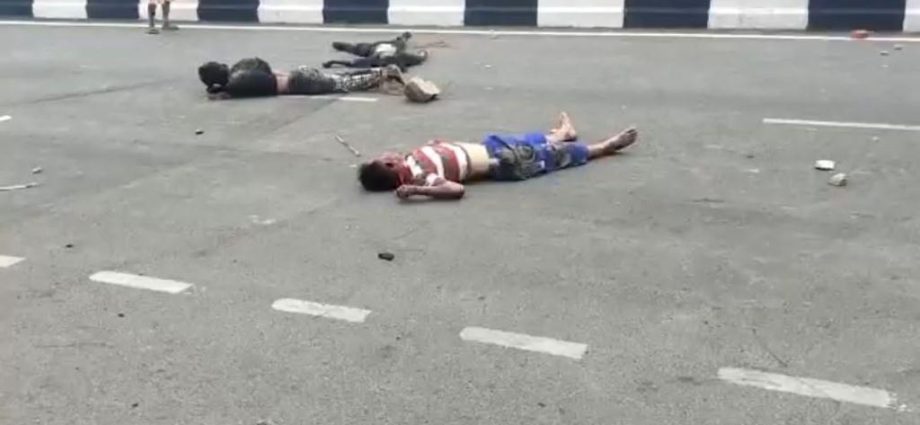By Matters India Reporter
New Delhi, May 21, 2021: On May 2, a day before Manipur went up in flames, T. Khupminthang, took shelter in the house of his employer, a Meitei, along with his son and three others.
The five Kuki tribals were residents of Churachandpur district, but worked in Imphal, capital of the northeastern Indian state.
Two of them did not survive the violence that lasted until May 6. A Meitei mob killed them.
On May 3, Khupminthang and others decided to seek shelter at an Army Camp. As they were ready to leave, hundreds of Meitei people descended on the house with sticks and iron rods. The five fled upstairs but were overpowered.
The mob then took them to a room and asked for their identification cards. Some in the mob shouted they were looking for the “Kukis.” On realizing one of their captives was a member of the Zou community, the mob said they pardoned him. Someone in the mob said Zous are part of the Kukis, the attackers’ mood changed.
The mob took three of them away while T Khupminthang and another person were hidden by their employer for an hour. T. Khupminthang later said he heard the cries of one of the captives. T. Khuplunthang and the other person went to the Singzamei army camp.
The mob that took the three tortured them and left them for dead on an Imphal street. Their attackers had taken the videos of the attack and posted them online. The police presumed the three dead and took their bodies to the morgue of a hospital in Imphal.
While two of them had died already, Khuplunthang’s son regained conscious and requested a nurse for her phone to call his mother in Churachandpur. He begged her to rescue him.
He was then shifted to an Army camp and to Churachandpur. He was treated for multiple injuries on his head and jaw in the Churachandpur district hospital.
In another incident, Manggoulal, 30, sat in fear in his house near the market and close to Kuki Baptist Church. He watched the church go up in flames on May 3.
The next morning, they called all emergency numbers. The Assam Rifles came, but asked them to come in their vehicle. Some 20 people, including Manggoulal, set off surrounded by Army vehicles. A mob of some 200 Meiteis stopped them. They were asked to get out of the car, but one of the soldiers signaled them not to do so.
The mob smashed the car’s windshield, wounding Manggoulal’s mother-in-law. The Army asked the family to drive back. But the mob pulled out Manggoulal’s grandmother and a neighbor.
Manggoulal said they were cornered with no escape. He and his wife got out of the car raising their hands. A man struck him with a bamboo stick, causing him to fall. He pleaded for an ambulance to take the mother-in-law to a hospital, even as the mob attacked him and his wife.
“We embraced, prepared for the worst, praying not to die in hatred,” Manggoulal recalled.
However, there were some good Samaritans among the Meitei people. Some rescued the captives and brought them to a school where they were reunited with their families.
However, two busloads of Meitei men came and tried to break down the door but were blocked by some Meitei women.
The attackers eventually withdrew when they heard the Meitei women shouting, “Kill us first before you kill them.”
The men however continued their attempts to break through the women’s line every half-hour or so.
When darkness fell, the victims heard the people protecting them move away in their cars. “One of the Meitei women entered in tears, with water and other provisions, seeking our forgiveness. They said they would be killed if they stayed on,” Manggoulal narrated.
Later that night, a man came with a gun. Manggoulal and the team thought he would kill them.
“When he asked us in an undertone to step out, we did. There were a few other gunmen with him. They led the 20 of us into a cottage in a hilly farming area about a kilometer away. Let’s stop this war, they told us. If you can escape, please spread the news that not all Meitei people want this,” Manggoulal recalled.

